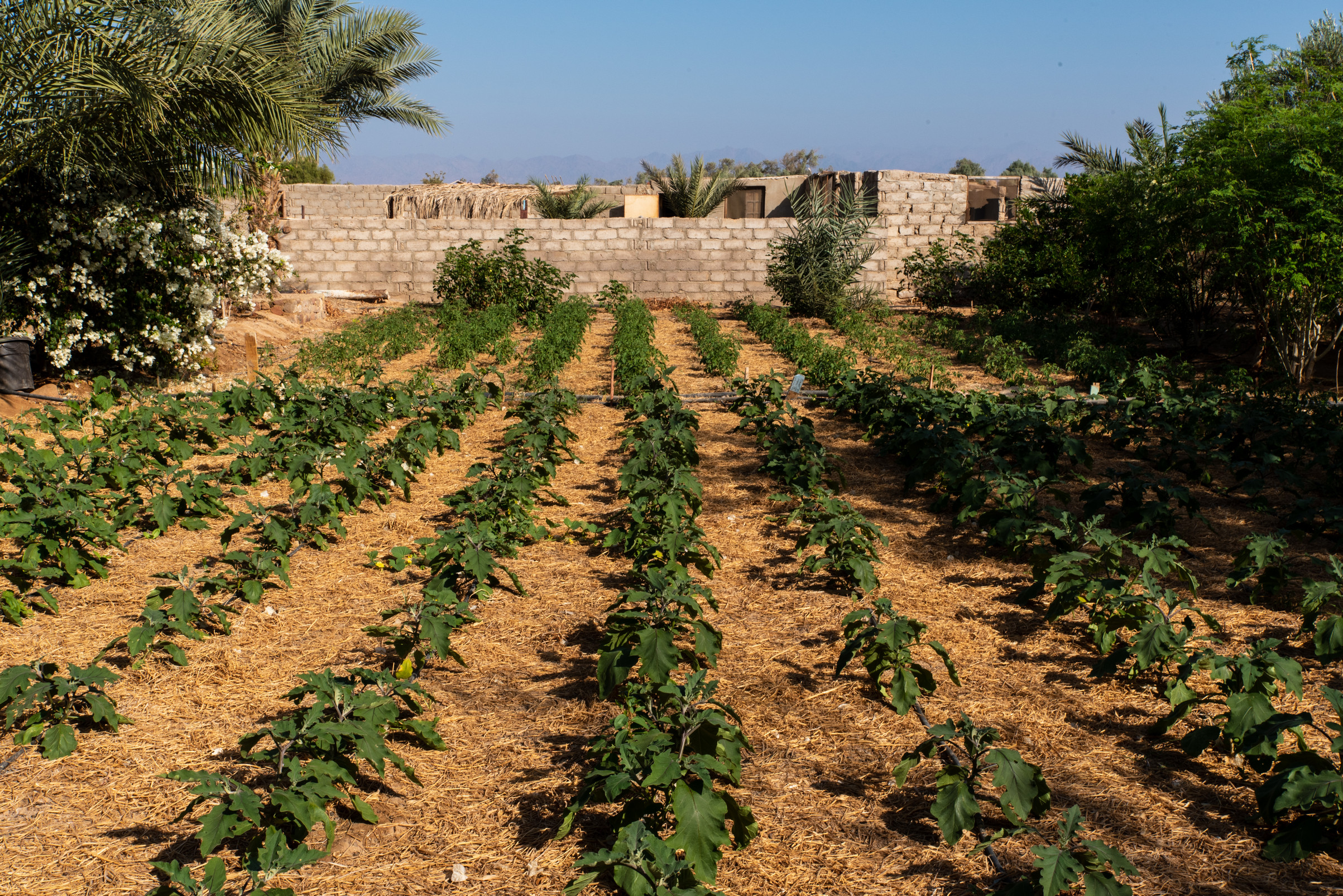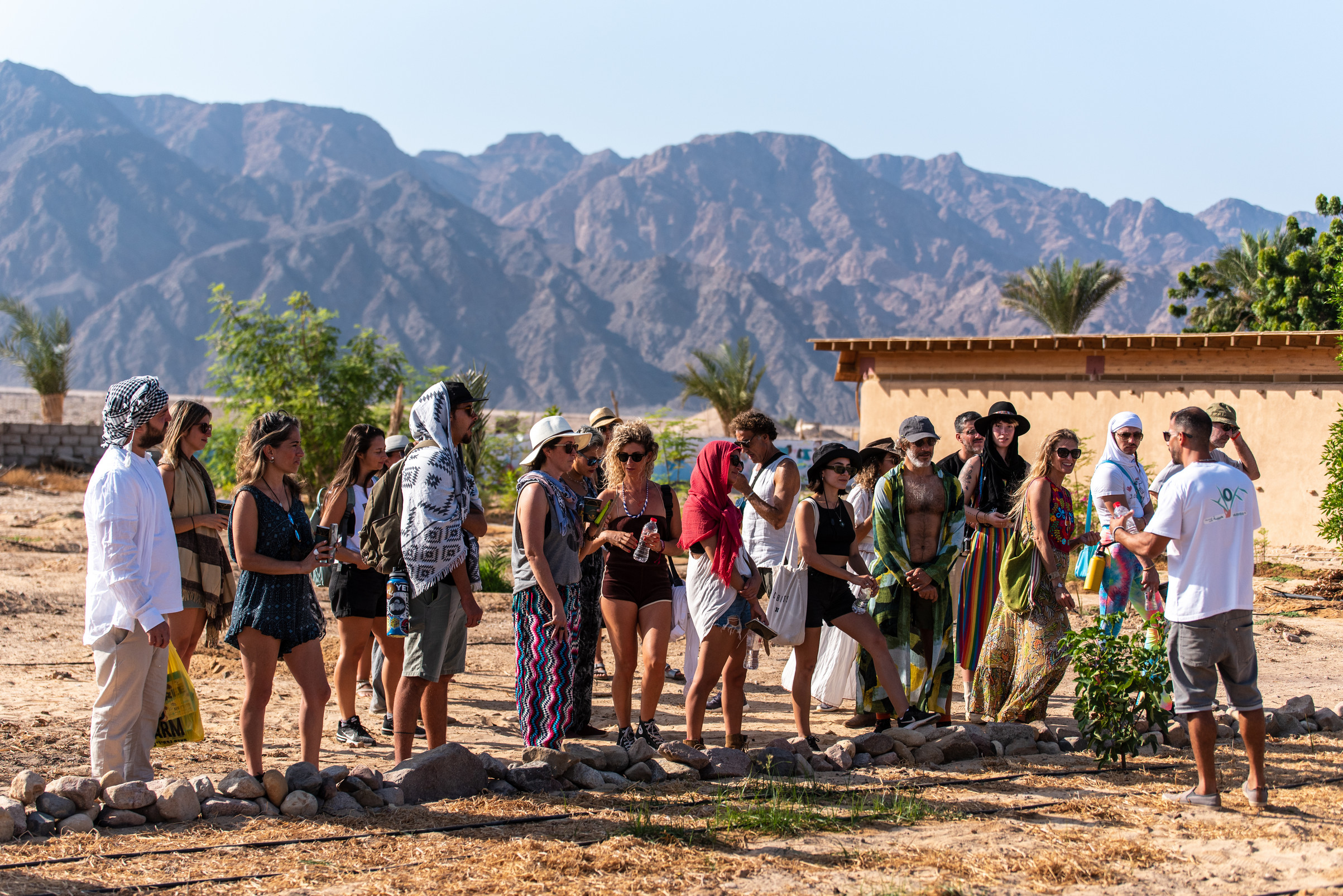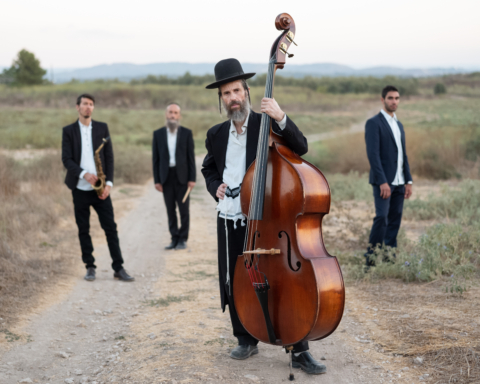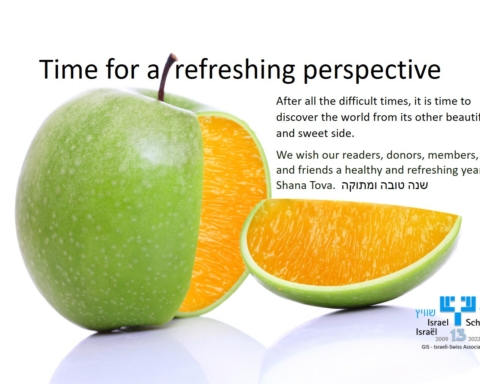While I didn’t fully grasp it at first, my curiosity outweighed my cynicism. I was one of 60 others at the first WHT IF gathering, an aspiring culture movement, waiting to reach a surprise destination about 90 minutes past the Israeli border. Five minibuses filled with people, from Holland to Iraq and everywhere in between, were driving amidst the arid mountains, half-built, half-broken buildings, and the abundance of beachside camps which line the Sinai peninsula.
Entering a small neighborhood layered with the muted neutrals of desert and cold concrete, we arrived at a colorfully painted set of gates. We soon learned it was home to a not-so-secret garden, Habiba Organic Farm (HOF), a family-run business on a mission to create food security, a learning development hub, and a sustainable sharing model to ensure a flourishing future for Nuweibba and its neighbors.

Walking through the gates, we were greeted by Karim Maged, 33, son of Habiba’s visionary, El-Said Maged. A warm and well-loved character, El-Said had opened Habiba Beach Camp in 1994, trusting his vision to live off the land and change a culture that relied heavily on tourism to one of self-sustainability. From what we could see, his vision had become reality. Our group wandered through the desert walkways lined with gardens growing cauliflower, eggplant, arugula, hibiscus, moringa, cotton, their all-star Medjool date, and more.
Since the economic crash in 2007, Habiba has become an eco-hub for agro-tourism, where responsible tourism is encouraged as an invitation to learn how to farm desert land and live alongside locals. It has attracted permaculture experts from around the globe to establish the growing community it has today.

Today, Habiba not only grows its own food, but has shared its business model with seven other Egyptian communities, and hopes to keep expanding. The family runs the Date Palm Foundation, which takes the profits from Medjool dates and funds the Habiba Learning Center, an after-school education program for 5-13-year-olds, teaching English, Arabic, math, and how to grow cucumbers. El-Said’s wife, Lorena, who is Italian-born, runs a women’s empowerment program, teaching handmade crafting skills for women in need. Their three children help with operations, business development, marketing, and more.
Habiba has become its own thriving ecosystem built on circular values, which has created a priceless sense of security within the community that had been solely dependent on tourism. When asked about the corona crisis, Karim speaks of his perspective shift. “We may not have had money coming in, but we had vegetables. We had the basics to survive. You can’t eat a banknote or barbecue a shekel. During coronavirus, what really matters became clear. Money is a tool that facilitates daily operations, but in a crisis, there are things that are so much more valuable – our relationships, sharing with the humans around us, love, one tribe, one vibe. This is the mindset of Nuweiba.”

Meeting the magic behind Habiba’s gates allowed a peek into the similar values of the WHT IF vision and its founding team, Nir Adan, Ifat Golan, and Abdul Abdin, who had brought us to the desert oasis in the first place, daring us to imagine the best-case scenario – what if our vision works and our culture shifts? What if we put our differences aside and focused on the threads that weave us together? What if we chose to learn, share, and grow together? Like Karim said as soon as we arrived: “Complete, don’t compete.” Perhaps this is the only way towards creating a culture of true sustainability.
To learn more, visit here.








